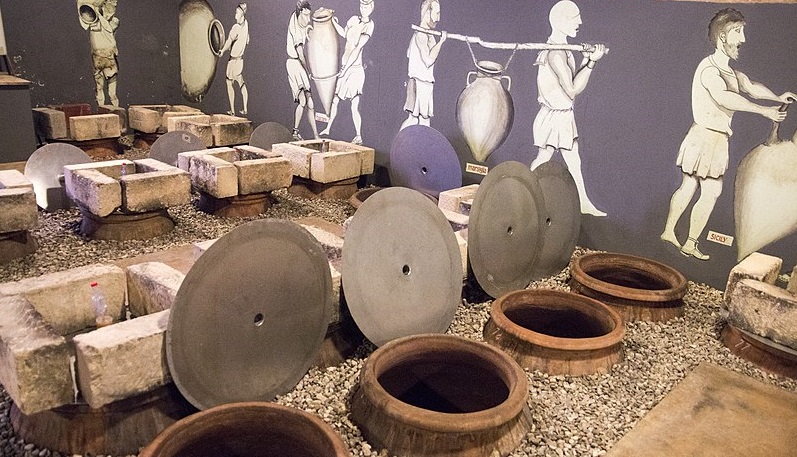Israeli Wine
Israel has a rich history of winemaking dating back thousands of years.
Today, the wine production is a combination of ancient traditions and modern techniques, resulting in wines that reflect the country's rich cultural heritage.

Ancient Roots
Winemaking in Israel has a history dating back thousands of years, with evidence of vine cultivation and wine production found in archaeological sites throughout the country.
Ancient techniques, such as fermenting wine in clay amphorae, have been rediscovered and incorporated into modern winemaking practices.
Diverse Terroir
Israel's wine regions encompass a wide range of terroirs, including high-altitude vineyards in the Galilee and Golan Heights, limestone-rich hillsides in the Judean Hills, and sandy soils in the Negev desert.
This diversity allows for the cultivation of a wide variety of grape varieties, from classic Bordeaux and Rhône varietals to Mediterranean and indigenous grapes.
Grape Varieties
While international grape varieties such as Cabernet Sauvignon, Merlot, and Chardonnay are widely grown, Israeli winemakers also work with indigenous varieties like Carignan, Argaman, and Marawi (Hamdani).
Additionally, there is a growing interest in reviving ancient grape varieties that have historical significance in the region.
Modern Techniques
Modern wineries utilize state-of-the-art technology and winemaking equipment to ensure quality and consistency in their wines.
Many wineries also employ sustainable and organic farming practices to minimize environmental impact and promote biodiversity in the vineyards.
Quality and Innovation
Over the past few decades, Israel's wine industry has undergone a transformation, with a focus on producing high-quality wines that can compete on the international stage.
Israeli winemakers are known for their innovation and experimentation, constantly pushing boundaries and exploring new styles and techniques.
Wine Regions
Israel is home to several wine regions, each with its own unique terroir and unique wine making techniques.
Galilee
The Galilee region in northern Israel is one of the country's most prominent wine-producing areas. It encompasses several subregions, including the Upper Galilee, Lower Galilee, and Golan Heights.
The Golan Heights, in particular, is known for its high-altitude vineyards, volcanic soils, and cool climate, which are ideal for growing quality wine grapes.
Cabernet Sauvignon, Merlot, Syrah, and Sauvignon Blanc are among the most widely planted grapes.
Judean Hills
The Judean Hills region in central Israel is characterized by its limestone-rich soils and Mediterranean climate. The region's hilly terrain and high elevation contribute to large temperature variations, which are beneficial for grape ripening and flavor development.
Bordeaux and Rhône grapes such as Cabernet Sauvignon, Merlot, Syrah, and Petit Verdot thrive here, producing elegant, structured red wines.
For white wine production, Chardonnay and Sauvignon Blanc are also grown in the Judean Hills.
Samson
Samson region from the foothills of the Judean Mountains and to the the coastal plain, benefits from a diverse range of microclimates and soils.
The region is known for its warm climate, which is conducive to the cultivation of a wide variety of grape varieties. Samson produces a range of wine styles, including both red and white wines, with grapes such as Cabernet Sauvignon, Merlot, Chardonnay, and Sauvignon Blanc.
Shomron (Samaria)
The Shomron region in the central part of Israel, is known for its ancient winemaking traditions and diverse terroir. The region's vineyards are planted on hillsides at varying elevations, with soils ranging from limestone and chalk to clay and gravel.
The Mediterranean climate, with hot, dry summers and mild winters, is well-suited to grape cultivation. Shomron produces a range of grape varieties, including Cabernet Sauvignon, Merlot, Syrah, Chardonnay, and Sauvignon Blanc, with an emphasis on quality and terroir expression.
Negev
The Negev region in southern Israel, is characterized by its desert climate and sandy soils. Despite the challenging conditions, modern irrigation techniques have enabled viticulture to thrive in this arid environment.
The Negev region produces a variety of grape varieties, including Syrah, Cabernet Sauvignon, Merlot, and Chardonnay, with an emphasis on full-bodied, fruit-forward wines.